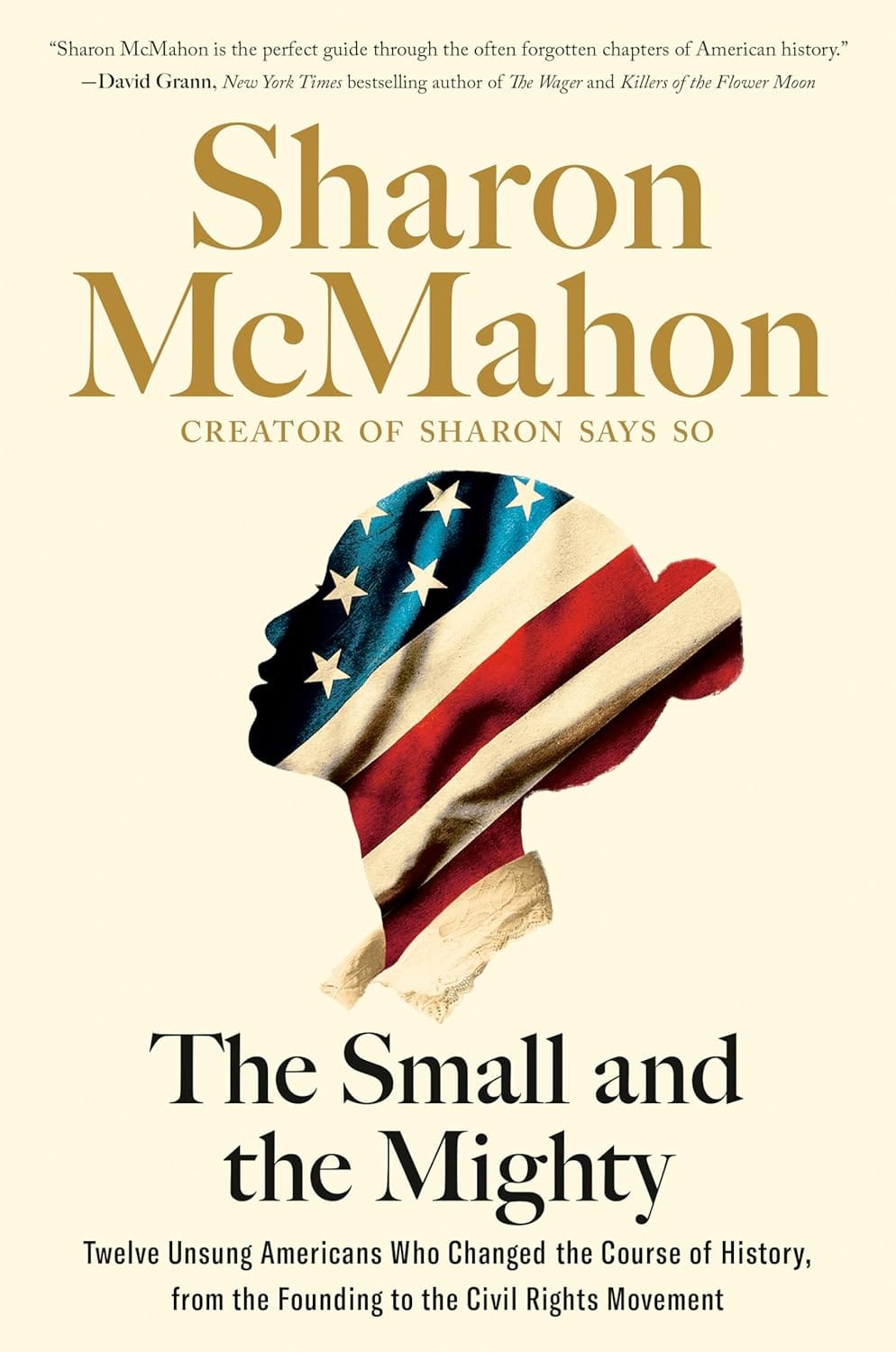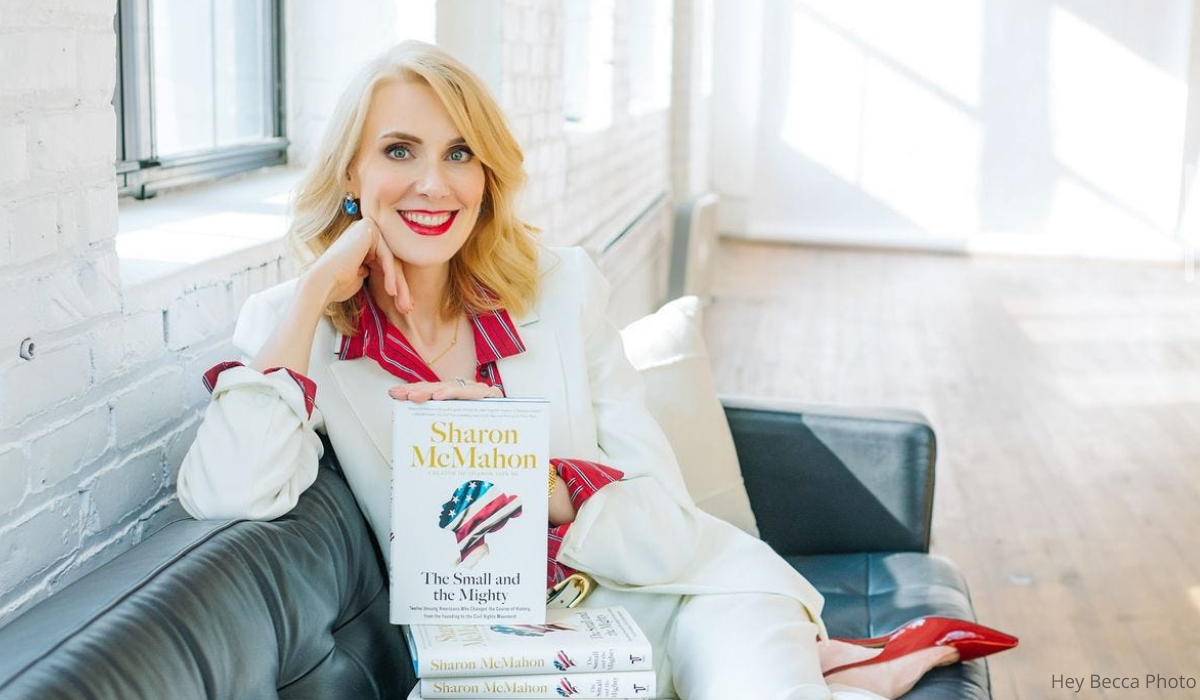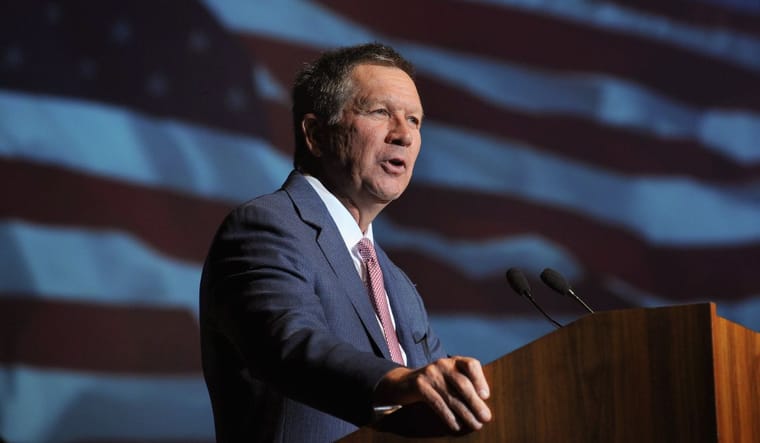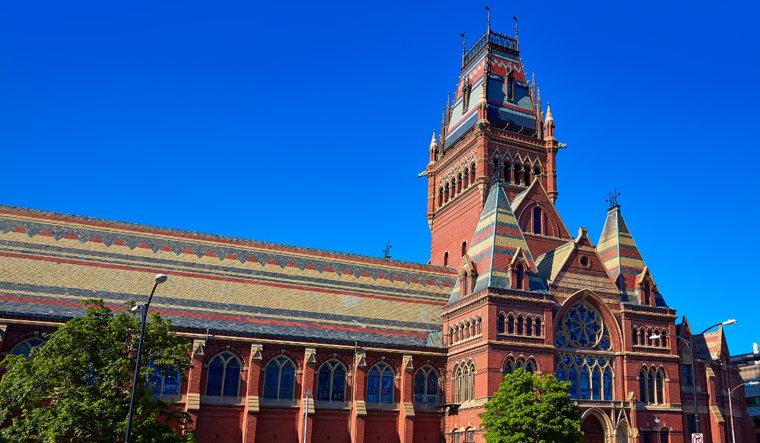Sharon McMahon Tells Maria About Her New Book—Stories of Ordinary Americans Who Changed History (and Ways You Can, Too)
Sharon McMahon is a voice we turn to help us make sense of these times. The former high school government teacher and now widely popular educator on social media—known as @sharonsaysso—has a talent for putting our history and present in perspective, all while offering radical hope. Now, with her new book, The Small and the Mighty: Twelve Unsung Americans Who Changed The Course Of History, From The Founding To The Civil Rights Movement, she gives us examples of how we can all can do big things to help our democracy and world.
As Maria said in her conversation with Sharon below, "this book is landing in the exact perfect moment." We all have a choice—to get involved, be mighty, and lean into hope.
A CONVERSATION WITH SHARON MCMAHON
We hear “the system is broken, the parties are broken, the Supreme Court is broken”—does that say to you that democracy is really in trouble, or does it say to you that this is just the way democracy works? That it’s showing democracy is actually alive and well and thriving, and people are debating. Which one?
It's a little bit of both. So yes, democracy is messy. It's historically been messy. I could give you 10 stories off the top of my head where things were very, very messy and we put the pieces back together and moved forward.
I always encourage people to look at the big picture. Even though these in many ways are unprecedented times, America has lived through a number of very unprecedented times and come out the other side. This to me does not signal: all hope is lost, forget it, burn it all down, it doesn't matter. I don't think that at all. What I do think is important to keep in mind in this moment, though, is that we cannot be complacent. We cannot just say to ourselves, “It'll all work out.” It's worked out before because people have made the choice to help it work out. They have made the choice to continue to hope despite immediate evidence to the contrary. That is because hope is not a feeling that we wait to descend upon us from the heavens. Hope is not a mathematical equation that comes out of calculators to determine that A plus B equals hope. Hope is a choice that we make. We have the choice to continue to hope and it is only through that choice to continue to hope that any positive change can come.
If we become complacent, if we become cynical, those do not lead us places we want to go. I encourage people to set aside the cynicism. Cynicism is not a path that we are going to be glad we took. Cynicism is what the vast majority of Russians are experiencing right now. They have a dictator at the helm and feel absolutely no power to do anything with their own government. They feel tremendous, tremendous amounts of cynicism. That is not going to lead us anywhere we want to go.
Think of Abraham Lincoln. Nearing the end of the Civil War, people were actively trying to kill him. They tried to kill him multiple times before they were successful. Half the country hates him so much that they would rather risk death than go along with his ideas. Yet, he says at his second inaugural address that America remains one of the last great hopes on Earth. If that was his perspective, then that was a choice that he was making. That was not because Abraham Lincoln had a sunny disposition. He didn't. He was prone to depression. That was not because Abraham Lincoln looked around and said, “I see so many amazing things happening.” With all evidence to the contrary, Lincoln continued to make the choice to hope. As he said in his second inaugural address, “with malice toward none with charity for all.” And I think that's an incredible vision that we can orient ourselves to even still today.
I love that. We can't just sit around and be complacent. It’s a choice that’s in front of all of us. We can all be involved in the healing and the hope and reject the cynicism.
You have a new book coming out, The Small and the Mighty: Twelve Unsung Americans Who Changed the Course of History, From the Founding to the Civil Rights Movement. These are profiles of hope. These aren’t profiles of people who sat back and said, “I'm just a regular person—who am I to be involved? Who am I to run? Who am I to try to change the trajectory?” You wanted to focus on people that said, “I want to step in. I believe I can change it. I have hope. I want to be involved.”
This idea that you need to be rich, powerful, and famous to do something of consequence is something that most of our ancestors—who have done incredible things in the world—would reject. We think today that you need to be a billionaire with a personal spacecraft to be able to do anything meaningful and I understand the inclination. You feel like, “Listen, I make $19 an hour. What am I going to do about this scenario?” I understand that perspective. I’m a realist. I'm not somebody who sees life through rose-colored glasses. But many, if not most, of the really important things that have changed for the better in this country have been done by people who were small and mighty. People who decided, “I don't care if it takes a long time. I don't care if the odds are against me. I don't care if y'all don't want me to. I'm not going to sit around and wait to be picked. I'm not waiting for permission. I'm just going to do it. I'm going to put one foot in front of the other.” That is power that all great Americans have shared. They have made the choice to just start doing something and it's a choice that we can all continue making today.
This book is landing in the exact perfect moment because I think people do feel small; they don't necessarily feel mighty, they feel small, invisible, set up, and exhausted. I love pairing mighty with small. I love talking about the choice for hope, which is a choice that each of us have to do in our own dark night of the soul and say, “Where can I help? Where can I be involved? Where can I be mighty? Where can I make the difference?”
You're talking about these 12 individuals, ordinary Americans, who formed the character of our country. It's such a gift to remind all of us, and to remind our kids if we have adult kids, that it didn't used to be this way. You used to really be excited about a political campaign, inspired to give back to your country, to want to be a part of the hope and the solution for your country. I love that you remain optimistic at this moment about our politics, our country, and the election process that we all find ourselves in.
I'm optimistic about American’s ability to make change. I'm not saying, “Hey, it's all well and good. Everything's going to work out. Everyone just cross your fingers.” I remain optimistic that great Americans are not people of the past. Great Americans, of course, have certainly existed in the past, but great Americans live, and we can all make the choice to be one of them. We all have our own spheres of influence. I think one thing that gets overwhelming to people is we look around and we feel like the size, the magnitude, of the issues is so large that they're beyond our control, but I think it's important to remember that we all play a very important and integral part in making change.
Maria, your platform is different than my platform. The people you influence are different. Maybe there's overlap, but we have different spheres of influence. Somebody who is a teacher in a kindergarten has a different sphere of influence. Somebody who works as a nurse in the emergency room has a different sphere of influence. The people who have influence over kindergarteners or patients should not think to themselves, “Who am I to do anything?”
The people who feel “my job is so small,” should always remember that the amount of influence they have absolutely can and does change the world. Our schools, our houses of worship, our homes, our workplaces—we have a tremendous amount of influence over those places. If we all exert the positive influence that we have on the places and the people that already exist in our lives, there’s a tremendous opportunity for us to make sea change, for us to change the trajectory of history. If we all just decide that we are going to orient our spirits towards hope, then we're going to make decisions from a place of “malice toward none with charity for all.” If we all decide to do that, what a change we would see right away.

This interview took place July 19, 2024. You can watch the full conversation here.
Please note that we may receive affiliate commissions from the sales of linked products.



